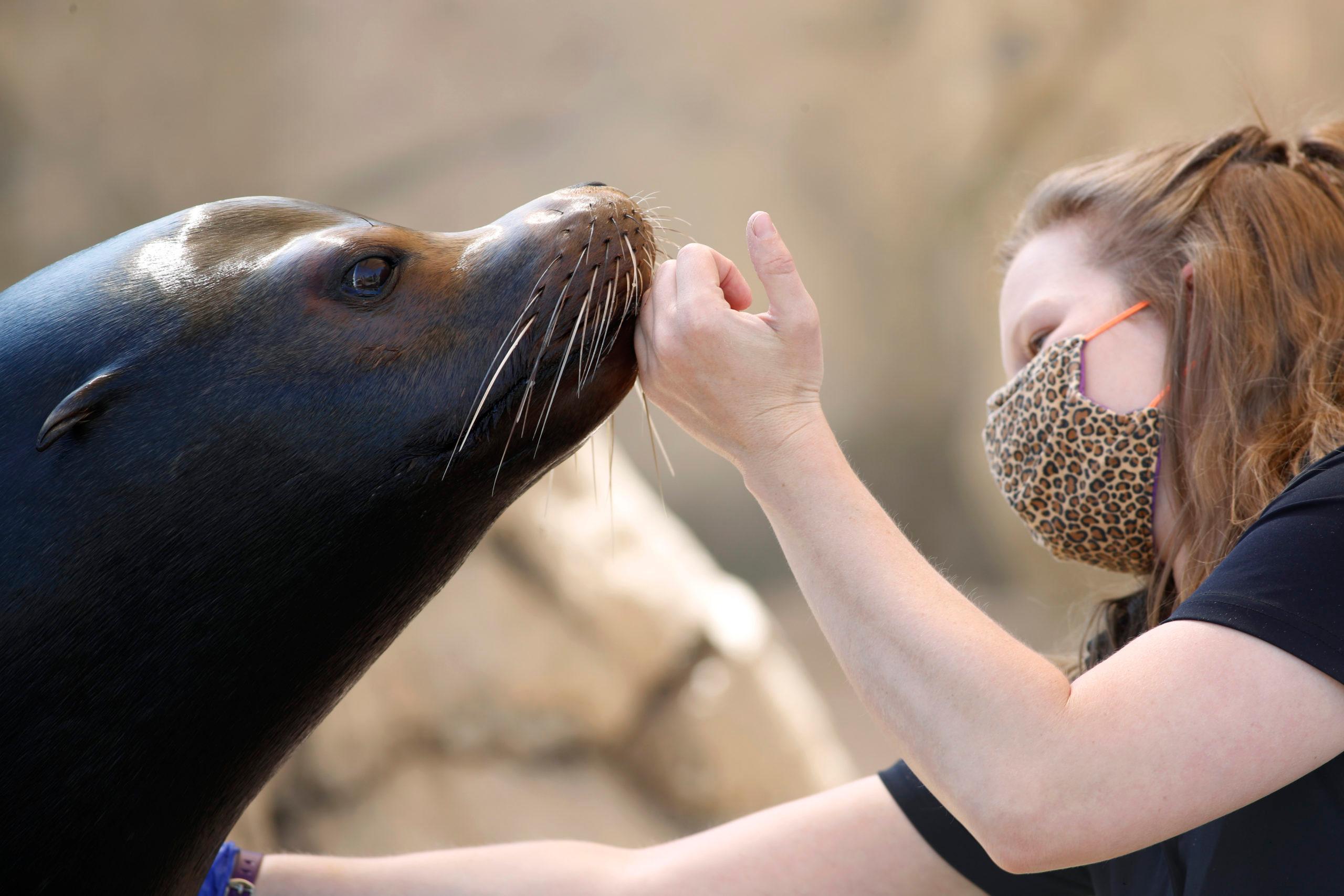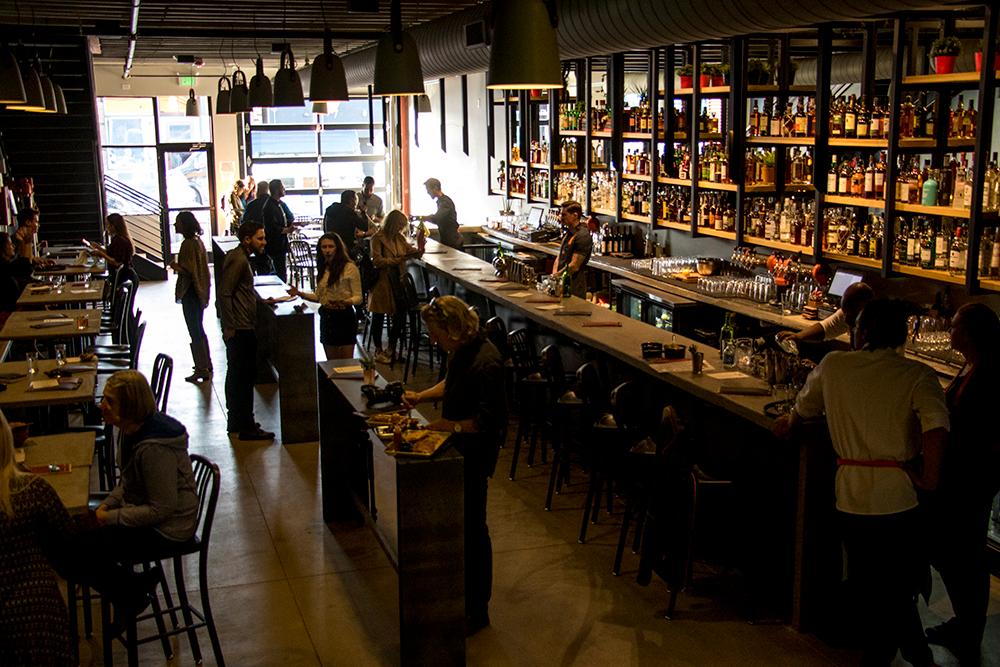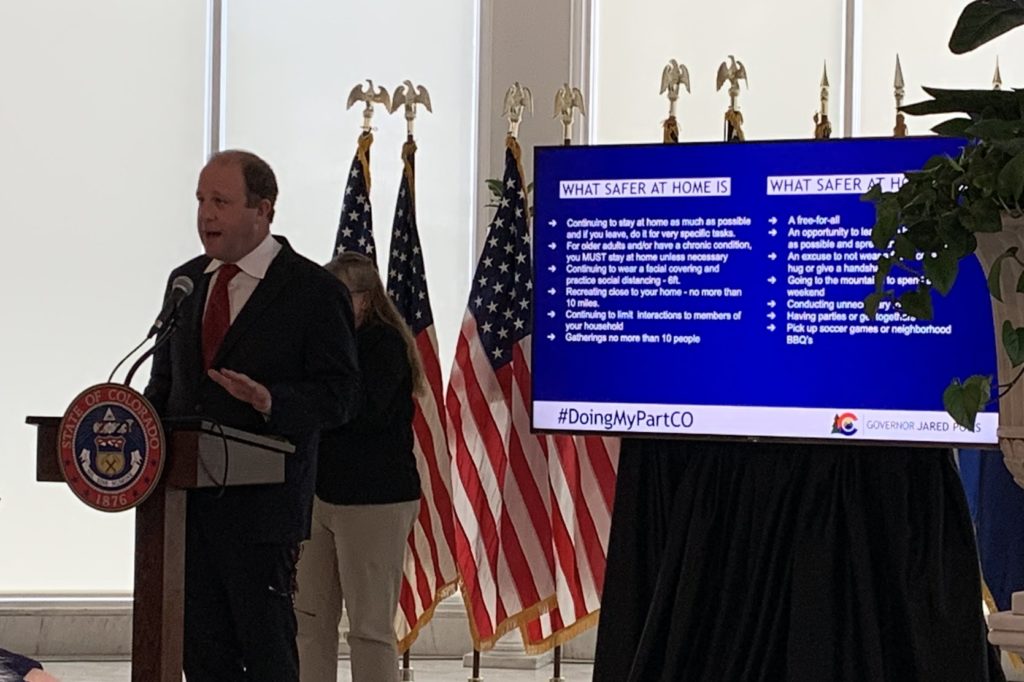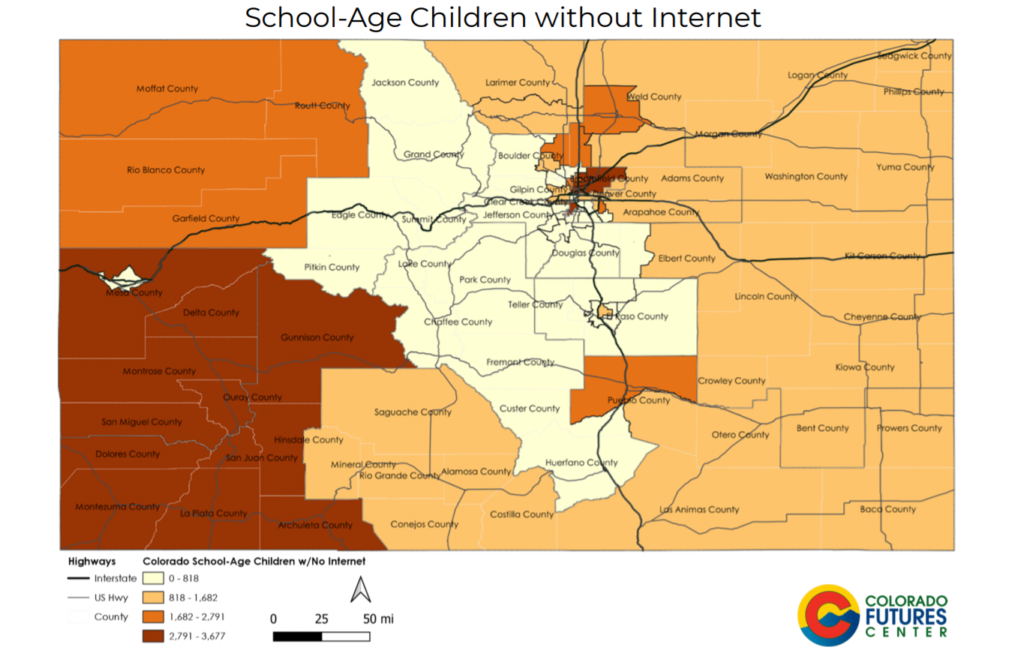
This post collects all of our reporting and updates on the coronavirus in Colorado for Wednesday, April 23, 2020. You can find the latest updates for Thursday here. Our original play-by-play of reporting continues below.
7:27 p.m. — This star Denver bartender is a gig delivery driver now to support his laid-off employees

When the coronavirus shutdown order came, well-known Denver bar owner Sean Kenyon laid off 53 employees and locked the doors at Occidental, Williams & Graham and American Bonded.
Then he picked up his car keys and hit the road. He’s working for meal delivery services now, raising money for an emergency fund for his workers.
“All of them are receiving unemployment right now and are doing OK, but this is like an emergency backup plan,” he said. “I mean for anyone that is in need that has rent to pay, your bills to pay or whatever it is, I’m just trying to do what I can because I can’t afford, personally, to hand out my money, although I would.”
He said he’’s made about $3,400. No employee has needed to tap the fund yet, he said. It’s there if someone needs it and if there’s money left when the staff is back at work he’ll donate it to a charity his employees chose.
He figures he’s driven 4,000 miles in the last few weeks delivering lunches and dinner around Denver. He drives for whatever delivery company is paying the most at the time.
“I’ll do lunch about three hours, like 11 to 2, I’ll take a break at home, then I’ll go from like 5 to 10, three or four days a week,” he said.
Kenyon, who was named American Bartender of the Year in 2014, gets some quizzical looks from restaurant staff when he walks in to make his pickups.
“Many times they’re surprised to see me because I haven’t made a big deal about what we’re doing … Everybody all around is very grateful,” he said. “A lot of the restaurants are stressed and some of them aren’t able to handle the to-go volume that they’re getting, but that’s good — that’s a good problem to have.”
Restaurants and bars are expected to reopen in the next several weeks. Kenyon says he’s worried about his employees’ health -- and about his company’s bottom line. He figures Gov. Jared Polis and Denver Mayor Michael Hancock will limit how many people bars can serve, maybe to half the usual crowd.
“We write our business plans on 100 percent capacity, we don’t write it on a half-full room,” he said. That means once the federal government’s loans are spent, “we worry as to the viability of the businesses moving forward."
"But we’ll adapt and thrive. We’ll be fine.”
— Michelle Fulcher
6:34 p.m. — The baby rhino has a name
And some new pictures. Read our full adorable story here.
— Alex Scoville
6:07 p.m. — Those National Jewish antibody tests have already sold out their first week
If you wanted to get an antibody test from National Jewish in Denver, you'll have to wait at least a week.
The hospital announced Wednesday it would start the drive-through tests on Friday, and appointments could be made online.
People acted fast, and filled all the available slots from Friday through the following Thursday, April 30.
National Jewish plans to run the blood-draw antibody tests every day, from 7:30 a.m. - 4 p.m. Mondays through Saturdays and 9 a.m. - 3 p.m. on Sundays.
More details about the program can be found here.
— Alex Scoville
4:29 p.m. — Nursing, rehab and group home residents a majority of the state's victims
The number of recorded coronavirus deaths in Colorado group homes and elder care facilities including nursing homes and rehab centers nearly doubled in a week to 324.
The institutional facilities were home to 64 percent of those reported killed by COVID-19 in the state through Wednesday.
Another 1,284 residents of the facilities have tested positive or shown enough symptoms of COVID-19 to be classified as “probable” for infection.
The facilities include nursing homes, group homes, assisted living facilities and rehab centers, most serving elderly residents. One staff member at a nursing home was also reported dead from the virus.
The state has been releasing data on outbreaks in residential facilities and workplaces once a week, on Wednesdays. Today’s release contained data on 123 institutions. Last week, 176 deaths were reported by the state or counties among residents of group homes or homes for the elderly.
More than 76 percent of the state's 508 reported deaths through Wednesday were among residents 70 and older.
The only facilities outside of nursing and group homes to report deaths are the Weld County Jail, which had one fatality, along with meatpacking plants in Greeley and Fort Morgan which had four deaths and one death respectively.
Early in the outbreak, Gov. Jared Polis announced an end to visitation at nursing homes and other facilities housing potentially endangered populations. He also required screening for symptoms among workers and vendors, but that failed to arrest the number of outbreaks in the homes.
Last week, Polis issued a new order requiring masks for anyone entering a facility, and requiring every nursing home to submit a plan by May 1 explaining how they are isolating patients showing signs of COVID-19. The National Guard was also dispatched to perform testing at the state's three largest nursing homes to try and identify and arrest outbreaks.
— Chuck Murphy
4:06 p.m. — The latest coronavirus numbers
There are 10,878 known positive cases of COVID-19 in Colorado as of Tuesday, April 21, according to the latest from state health officials.
That's an increase of 431 reported cases from the day before.
Twenty-two more people have died due to the disease, bringing the statewide total to 508.
2,123 cases have been hospitalized.
Four more outbreaks in factories and long-term care facilities have been reported, bringing Colorado's total to 123.
The state has tested more than 50,500 people.
— Alex Scoville
2:44 p.m. — Polis: Going from stay at home to safer at home is like going from the bunny hill to a green run

Gov. Jared Polis used most of his Wednesday update to emphasize that the waning of the stay at home order wasn't a "free-for-all."
“I want to reiterate this is not anyway going back to normal,” Polis said. “It’s how we can have a sustainable life in May and beyond.”
We have more on the governor's Wednesday update here.
— Hayley Sanchez
1:32 p.m. — Gov. Jared Polis is about to speak
The governor will provide an update on the state's response to the coronavirus starting soon from the Governor's Residence at Boettcher Mansion. CPR News will carry live coverage.
Find a signal near you, ask your smart speaker to "Play CPR News" or watch the video below.
1:29 p.m. — National Jewish to offer antibody tests
National Jewish Health in Denver will start offering antibody tests on Friday that their researchers and medical professionals developed.
Antibody tests, also known as serological tests, look for antibodies in a person's blood, indicating that they had contracted COVID-19 and had an immune response to the disease.
The test is meant for people without symptoms of the disease.
Antibody tests may help trace the virus in later stages of an outbreak, although their reliability is questioned by some public health experts. We wrote more on that here.
Testing is done via a drive-through at the National Jewish Health Harrison Street parking lot between 13th and 14th avenues.
Individuals looking to get tested can book an appointment on their own here, or get a referral from a physician. If a person requests a test on their own without a physician's referral, it will cost $94.
Results are returned in 24-48 hours.
More details are available on National Jewish's website.
— Alex Scoville
12:54 p.m. — First Space Force, next Health Force?
Colorado Sen. Michael Bennet and New York Sen. Kirsten Gillibrand are proposing the creation of a Health Force to help tackle the coronavirus pandemic.
Bennet said the country faces a once-in-a-century public health challenge, and this would be one way to get people back to work — employing people in the public health surge that will be needed to open the economy back up safely.
“We need ideas as big as the challenges we face,” Bennet said. “I think the Health Force meets that test.”
The trained health force workers would help in the crisis by conducting testing, contact tracing, and eventually vaccination. They’d also help out with more mundane duties like data entry and office work. Gillibrand said members of this health force would be deployed to the front lines of the coronavirus response and would “amplify the work and expertise of state and local public health agencies.”
The senators are trying to get the idea included in the fourth coronavirus relief package that is currently being negotiated.
The proposed Health Force would be federally supported but locally managed. While the people would serve as “a force multiplier” for the current crisis, the program would also provide grants to state and local health department to hire and retain force members to serve as health extension workers in underserved areas.
— Caitlyn Kim
12:28 p.m. — Senate candidates blame COVID-19 as they seek a spot on the primary ballot

When the coronavirus pandemic hit Colorado in mid-March, many political hopefuls were among the early collateral damage.
That’s because virus fears were just ramping up at the same time that many were entering their final push to collect enough signatures to make the ballot. With paid canvassers scared to work and the public increasingly scared of handling shared pens and papers, many candidates fell short.
However, a Denver judge has revived some hopes. On Tuesday, he ordered the state to add Senate candidate Michelle Ferrigno Warren to the Democratic primary ballot, in spite of her only submitting around half the valid signatures necessary. Another candidate in the Senate race, Lorena Garcia, is now going to court asking for the same relief.
All this means that former House Speaker Andrew Romanoff and former Governor John Hickenlooper, who for a while looked like they’d be the only ones squaring off in the primary to take on Republican Cory Gardner, may have some more company on the ballot.
Read CPR’s full story on the situation here.
— Megan Verlee
12:07 p.m. — Fremont County asks Gov. Polis for waiver to reopen
Fremont County, to the west of Colorado Springs and Pueblo, has sent a letter to Gov. Polis requesting a waiver to reopen. Like Eagle and Mesa counties, Fremont wants to restart its economic recovery. They feel they are in a position to do so while protecting public health.
County commissioners instructed the county public health director to submit the waiver request to the state. Public Health Director Emma Davis included the county's plans for social distancing, masks and case testing and tracing alongside the request.
“These protocols will allow businesses to start thinking of appropriate ways to reopen, while keeping staff and citizens safe,” said Debbie Bell, the current board chair of the commissioners in a statement. “We all need to be careful and do this right. We don’t want to step back with an outbreak.”
The county said its plan is in alignment with the state's intention to gradually and slowly reopen Colorado.
— Jim Hill
11:46 a.m. — Delta County approves business loan partnership
Delta County leaders and organizations have teams up to provide loans for small businesses impacted by the coronavirus pandemic.
The county has donated $250,000 to a fund designed to provide short-term support for businesses as they work to secure federal relief funding.
“This program has come together very quickly. I think this is a good thing for the county to spend money on,” Greg Pope of the Uncompahgre Development Company told the Delta County Independent.
The loans can be used for things like rent or mortgage, payroll, insurance or utilities, as well as changing delivery or manufacturing process in response to the pandemic.
Read the full story from the Independent.
— Daniel J. Schneider
11:15 a.m. — Broomfield reports first long term care facility outbreak
Broomfield Public Health and Environment on Tuesday reported the county's first outbreak at a long term care facility.
As of Tuesday, there were six confirmed cases and one death at the Sunrise at FlatIrons facility. An outbreak is defined as two or more cases within 14 days.
The resident who died was in their 90s and had known underlying conditions.
“This facility continues to offer its residents an intense level of compassion and care, and we look forward to supporting the facility in implementing their isolation and quarantine practices,” Public Health Director Jason Vahling said in a release. “With almost 40 percent of Colorado's fatalities associated with long-term care facilities — home to our most vulnerable residents — we strive to create the safest environment possible.”
Thousands of families across Colorado have a member in a long-term elder-care facility with cases of COVID-19, and many have reported difficulty getting testing or information about the outbreaks.
Colorado Gov. Jared Polis announced on Friday that he was requiring every nursing home in the state to file a plan for isolating residents who show symptoms of the coronavirus.
— Daniel J. Schneider
10:05 a.m. — What's the reopening plan for Denver?
Gov. Jared Polis’s decision to gradually reopen Colorado raises questions about how Denver, home to the state’s greatest concentration of COVID-19 cases and deaths, will shield itself against a potential surge as people reemerge into society.
Experts say more and better testing paired with a regional approach to reopening metro economies will be crucial. But politics also play a role.
The city’s stay-at-home order expires April 30 — Mayor Michael Hancock was considering an extension as recently as Monday — but Colorado’s stay-at-home order expires April 26, at which point local municipalities like Denver can decide for themselves what to do.
— David Sachs
9:27 a.m. — Polis will speak today
The governor will provide an update on the state's response to the coronavirus. His remarks are scheduled for 1:30 p.m. MDT today from the Governor's Residence at Boettcher Mansion. CPR News will carry live coverage. Find a signal near you or ask your smart speaker to "Play CPR News."
8:59 a.m. — It's getting a little weird(er) out there as far as tensions go
Authorities say a customer at an Edwards grocery store was cited on suspicion of intentionally coughing on another shopper’s items after refusing to comply with social distancing rules.
The Eagle County Sheriff’s Office said Monday the man ranted that grocery worker was falling for media hype about the coronavirus before the man got between a customer and the employee and coughed on the other customer's products.
The man denied coughing and said he believes the virus is similar to the common cold and is part of a “plandemic” by global central bankers to collapse U.S. currency and bring about a one-world government.
— Associated Press
8:16 a.m. — Denver city-owned golf courses open today
Here are the restrictions and policies you will have to follow if you're looking to schedule a tee time. The city notes that anyone who fails to follow the rules will be removed with no refund.
Top of the list: Golfers must wear a facemask.
— Jim Hill
7:49 a.m. — Colorado will soon be "Safe-at-home" rather than "Stay-at-home." How's that going to work?
The statewide "stay-at-home" order is set to expire this Sunday but that doesn't mean the doors will be wide open on Monday and Colorado is back to normal.
The keyword for everyone is "slowly."
There are a lot of moving parts to the second phase of the state's public health plan to get us back outside and get the economy restarted. We're keeping track of what we know so far here.
— Jim Hill
7:32 a.m. — Majority of Colorado children without internet at home are children of essential workers
A new report shows that two-thirds of Colorado children without internet access at home are Hispanic. Colorado State University economist Phyllis Resnick said the majority of those children have at least one parent who is an essential worker.
"At least one of the parents is having to juggle working during this very difficult time with also having a young child who is at home trying to distance learn in an environment where there is not internet access in the house," she said.

Half of the children were found to be part of families who earn less than $50,000 a year. With schools closed for the remainder of the school year, Resnick said the achievement gap between low-income children and their wealthier peers will worsen.
One recommendation is informal learning in small groups over the summer. One in 20 or 54,000 school-age children in Colorado lives in a household with no internet access.
The school closures due to COVID-19 have illuminated the deep digital inequities between the state's districts.
— Jenny Brundin
7:08 a.m. — The clock is ticking on long-term care facility plans
Colorado nursing homes and assisted living facilities have until May 1 to submit plans on how they will protect residents from the coronavirus.
The requirement was announced by Gov. Polis last week among other protocols to protect the state's "most vulnerable" as the stay-at-home order is eventually rolled off. The state released the new amended public health order yesterday.
More than 100 facilities in the state have reported outbreaks and many of the state’s deaths are linked to sites that care for older Coloradans.
Facilities are already required to limit visitors. Residents have to wear masks in public and staff must wear them at all times while at work. The state health department is offering the facilities a template for how they will identify and isolate those who test positive for COVID-19.
There are 372 Coloradans over age 70 who have died from the infection, but not all lived in care facilities.
— Natalia Navarro
6:45 a.m. — Where cases stand this morning
Colorado has seen 10,447 known positive cases of the novel coronavirus. Those cases have been found in 56 of the state's 64 counties with 2,003 who have been hospitalized at one point and 486 deaths.








